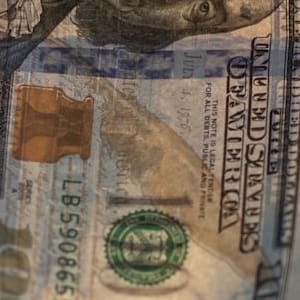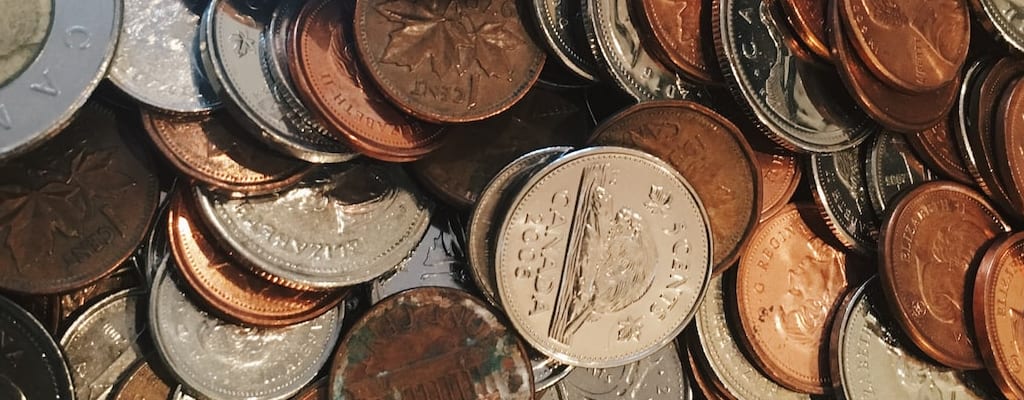bet one’s bottom dollar: Idiom Meaning and Origin
What does ‘bet one's bottom dollar’ mean?
The idiom "bet one's bottom dollar" means to be absolutely certain or confident about something, even to the point of wagering one's last bit of money on it.

Idiom Explorer
The idiom "in the money" means to be in a financially successful or prosperous situation.
The idiom "in for a penny, in for a pound" means that once you commit to doing something, you might as well fully commit and go all the way, regardless of the cost or consequences.
The idiom "in for a dime, in for a dollar" means that once you commit to something, you are fully committed and have to see it through to the end, regardless of the consequences or risks involved.
The idiom "go for broke" means to take a great risk or make a bold, all-out effort in pursuit of a goal, regardless of the potential consequences or failure.
The idiom "for all one is worth" means to do something with all of one's ability or effort, often in a desperate or determined manner.
The idiom "fancy one's chances" means to believe or have confidence in one's likelihood of success in a particular situation or endeavor.
Surprising Dollar Secret
The idiom "bet one's bottom dollar" is a common expression in the English language, particularly in American usage. It conveys a sense of certainty or confidence in a particular outcome. The phrase originated in the 19th century and has since become firmly embedded in the vernacular of native English speakers.
The term "bottom dollar" symbolizes the utmost confidence and conviction that a bet or assertion is correct. When someone "bets their bottom dollar" on something, they express a strong belief in its success, often implying that they are willing to stake everything they have on its outcome.
Figuratively, the idiom is more than just a phrase about betting money. It also connotes unwavering trust or faith in a specific outcome, not necessarily related to monetary matters. Someone who bets their bottom dollar on an idea or proposition is expressing unwavering confidence in its truth or success.
The etymology of the idiom dates back to the early days of gambling, reflecting the association between financial stakes and the concept of certainty. The usage of "bottom dollar" in this context likely came about due to the significance of the lowest denomination of currency, which represents one's last or final reserve. Betting one's bottom dollar, therefore, became a vivid and evocative way to express absolute certainty in the outcome of a wager.
Over time, the idiom has become firmly established in the English language, finding its way into literature, popular culture, and everyday conversations. Its meaning has remained consistent throughout history, preserving the notion of unwavering confidence and assurance in a particular outcome.
Although the exact origin and early usage of the idiom remain somewhat unclear, it is difficult to trace precisely when and where it first emerged. Idioms frequently evolve and gain popularity gradually. Its colloquial nature makes it challenging to pinpoint an original source or specific historical event associated with its origin.
While "bet one's bottom dollar" stands alone as a well-known idiom, it can also be seen as part of a broader family of idioms that revolve around the concept of betting and staking everything on a belief or outcome.
One related idiom is "bet one's boots". This expression conveys a similar sense of confidence and conviction, but with a slightly more informal and playful tone. It suggests that someone is so sure of a particular outcome that they are willing to bet even their own boots, which is a humorous exaggeration of the willingness to stake everything.
Another related idiom is "bet the ranch". This expression emphasizes the high stakes and risks involved. It implies that someone is so confident in a specific outcome that they are willing to bet their entire ranch, which represents a significant and valuable asset.
Similarly, "bet the farm" is another idiom that conveys a strong belief in an outcome. This expression implies that someone is willing to risk everything they have, including their farm, which represents their livelihood and most valuable possession.
Lastly, the idiom "in for a dime, in for a dollar" is related to the concept of betting everything. It means that once you're committed to something, you might as well go all in. It suggests that once you've taken a small risk, you might as well take a bigger one, as the additional potential reward outweighs the initial investment.
"bet one's bottom dollar" represents the deep conviction or confidence an individual has in a specific outcome. Its vivid imagery vividly depicts the willingness to stake everything on a particular belief or wager. While its exact origins may remain elusive, its enduring popularity and resonance within the English language persist. As with many idioms, it has evolved and found its place among a family of related expressions, each emphasizing the willingness to risk everything on a particular outcome.
Example usage
Examples of how the idiom bet one's bottom dollar can be used in a sentence:
- I can bet my bottom dollar that she will win the singing competition. (expressing absolute certainty)
- You can bet your bottom dollar that he will be late to the meeting again. (emphasizing a predictable behavior or outcome)
- I'm willing to bet my bottom dollar that the new product will be a huge success. (stating confidence in a prediction or belief)
More "Certainty" idioms



